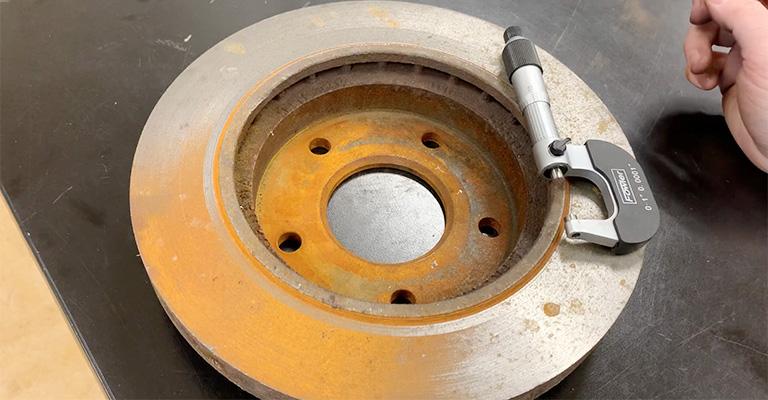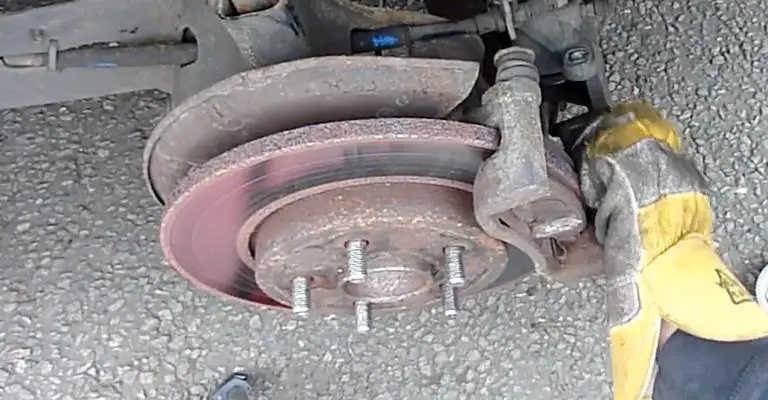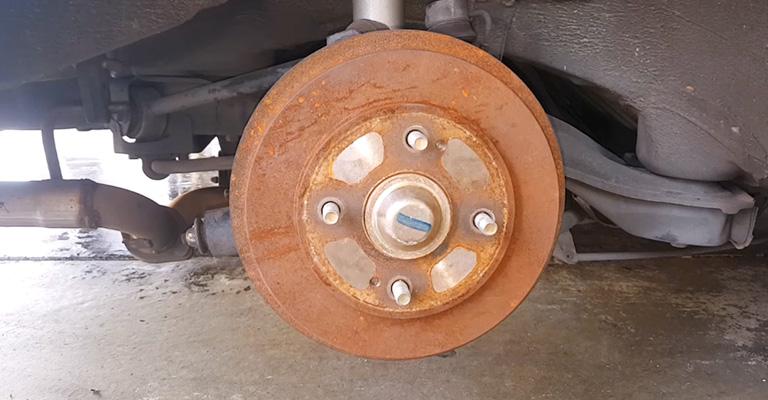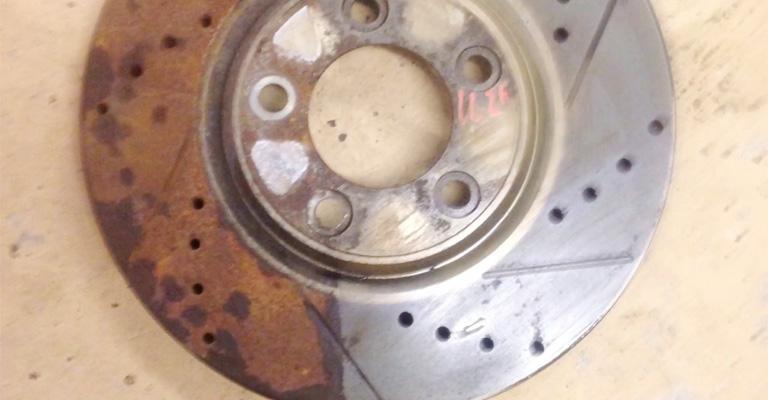If you’ve noticed that your brake discs have turned orange or reddish, you may wonder what could be causing this change.
There are a few possible reasons why brake discs might turn orange, including exposure to high temperatures, accumulated brake dust, or rust.
In this article, we will explore the potential causes of orange brake discs and discuss some steps you can take to address this issue.
It’s important to note that while a change in the color of brake discs is not necessarily a cause for concern, it is always a good idea to have your brakes checked by a professional mechanic to ensure that they function properly.

Contents
Why Are My Brake Discs Orange?
There are a few possible reasons why your brake discs might be orange. Here are a few possible explanations:
Brake Dust
Brake dust is a byproduct of friction when applying your brakes. It comprises tiny particles of metal, rubber, and other materials that wear away from the brake pads and discs over time.
The brake dust can accumulate on the surface of the brake discs, giving them an orange or brownish color. This is typically not a cause for concern, as the brake dust can be easily cleaned off with a simple brake cleaner or a water and soap solution.
Heat

Brake discs can become orange or red in color if they have been subjected to high temperatures. This can happen if you have been driving aggressively, such as by frequently braking hard or driving at high speeds for extended periods.
The heat generated by the brakes can cause the disc to change color, but this is usually temporary, and the disc will return to its normal color once it has cooled down.
Rust

Rust on brake discs can also give them an orange or brownish color. Rust can be caused by exposure to water and salt, poor maintenance, or the accumulation of brake dust.
If you suspect that your brake discs are rusting, you should have them inspected by a mechanic to determine the cause and take appropriate action to fix the issue.
It’s worth noting that it is normal for brake discs to change color slightly over time due to the wear and tear of regular use.
However, if you notice a significant change in the color of your brake discs or if you experience any issues with your brakes, it is always a good idea to have them checked by a professional mechanic to ensure that they are functioning properly.
How To Remove Orange Rust From Rotors?

There’s probably nothing wrong with your brakes, but they’re rusty. A rusty surface is the result of corrosion. As the rust eats away at your rotors, it can cause pitting and etching.
The problem is that you can’t clean off the rotors with a cleaning product unless you take the wheels off, and even then, you have to be extremely careful not to damage them. Rotor rust can be easily removed with a free, easy, five-minute method.
A few stops at a slow speed (5-10 mph) are all it takes to remove the rust. You should do this in a parking lot or on a quiet street where no cars are present, as if you’re not paying attention, you could get rear-ended.
Furthermore, you rarely apply enough force when braking while driving, so the calipers don’t grip and remove the rust when you brake. To make this trick work properly, you’ll need to press harder on the brake pedal.
It won’t cause any damage, will not harm your car, and will not harm you unless you accidentally hit something (legally, you should not hit your brakes if you are not comfortable doing so).
Although rotors in humid or wet regions of the world are more likely to rust, it happens to everyone. There are dozens of dirty rotors on the street, and it’s really an eyesore.
If you remove the rust from your rotors, you’ll see how much they take away from your car’s appearance. Please try it and let us know how it went.
Final Words
A fine layer of rust forms on brake disks after they have been wet. Your brakes will remove it when you tap them, and it will reappear once you have parked. You should not worry about it.
The rust can get so bad that it doesn’t wipe off, but it acts as an abrasive and sands your brakes to nothing over a short period if the car has been parked for some time. Your brakes will likely need to be serviced at that point.
